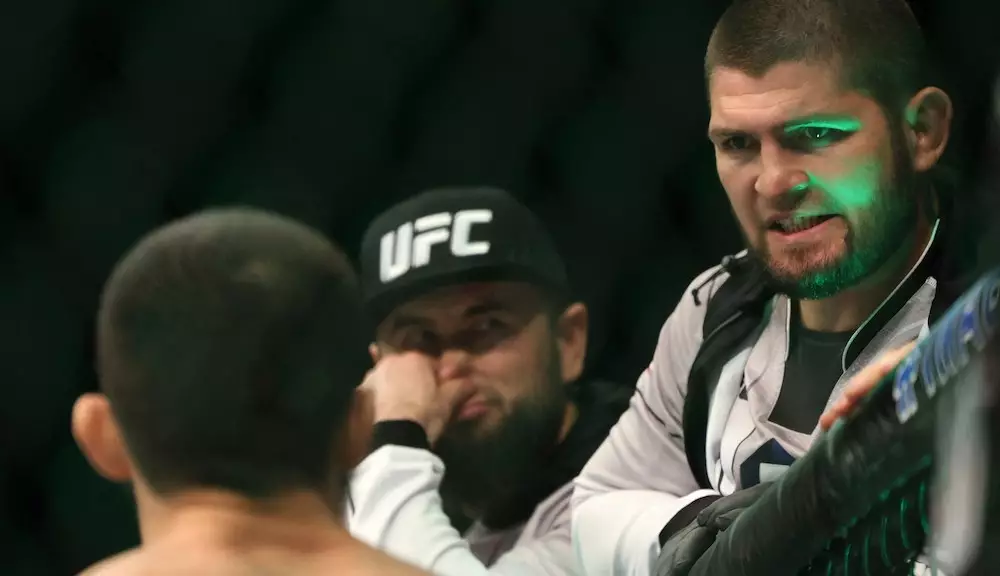Khabib Nurmagomedov, once revered as one of the most formidable fighters in the UFC, has encountered unexpected complexities in his transition from the octagon to the coaching realm. Although he retired as an undefeated lightweight champion in 2020, stepping into the role of head coach for Team Eagle has proven to be no walk in the park. Nurmagomedov has found fulfillment in shaping the careers of rising fighters, but this new chapter often carries unforeseen emotional burdens. Moreover, he acknowledged to ESPN that the coaching experience has taken a toll on him—tasking him with responsibilities that starkly contrast with the personalized control he once experienced in the ring.
Unlike fighting, where one can hone their skills through direct engagement, coaching requires a relinquishment of control. Nurmagomedov remarked on the stark differences that come with guiding others instead of competing directly, stating that he can only provide advice while remaining an observer. This realization has sparked a certain degree of restlessness within him, as he is used to being at the forefront of the action. The new obligation to mentor fighters demands patience and empathy, virtues that can be difficult for someone who thrived on the adrenaline of competition.
Despite these challenges, Nurmagomedov views coaching not merely as a career but as a legacy. His profound knowledge, accrued from years of rigorous training under the watchful eyes of influential coaches such as Abdulmanap Nurmagomedov and Javier Mendez, positions him as a pivotal figure in his fighters’ lives. He articulated a sense of duty to impart what he has learned—the intricacies of weight management, mental preparation, and the overall fight experience. His following in the footsteps of his father demonstrates a commitment not just to mentoring but to preserving his family’s legacy in mixed martial arts.
As Nurmagomedov prepares for significant events like UFC 311, where his fighters Islam Makhachev and Umar Nurmagomedov are set to compete for championship titles, his expectations and aspirations escalate. The emotional strain of watching his fighters face the pressures of high-stakes bouts adds layers to his coaching responsibilities. He feels their collective triumphs and defeats as acutely as he felt in his own career. This upcoming milestone serves as a litmus test for his adaptation to this new role. Will he find satisfaction in his contributions, even if they are not as palpable as experiencing victory firsthand?
While Khabib Nurmagomedov’s transition from fighter to coach has presented him with unique challenges, it is also a journey of growth and understanding. His insights into the emotional tapestry of coaching not only reflect his evolution but also enhance the landscape of mixed martial arts, ensuring that the wisdom of his experiences is passed down to future generations.

